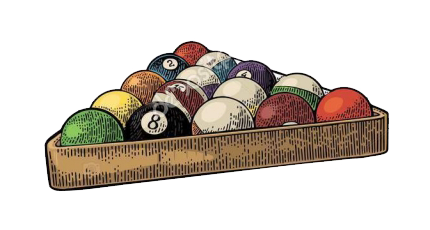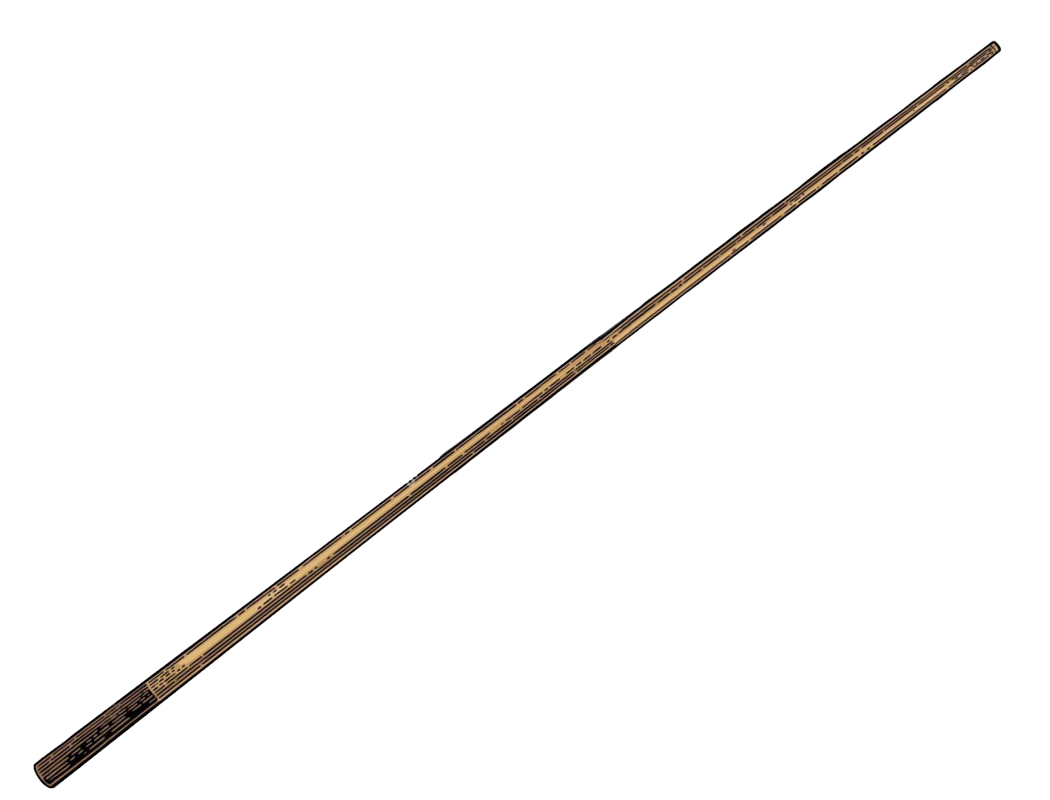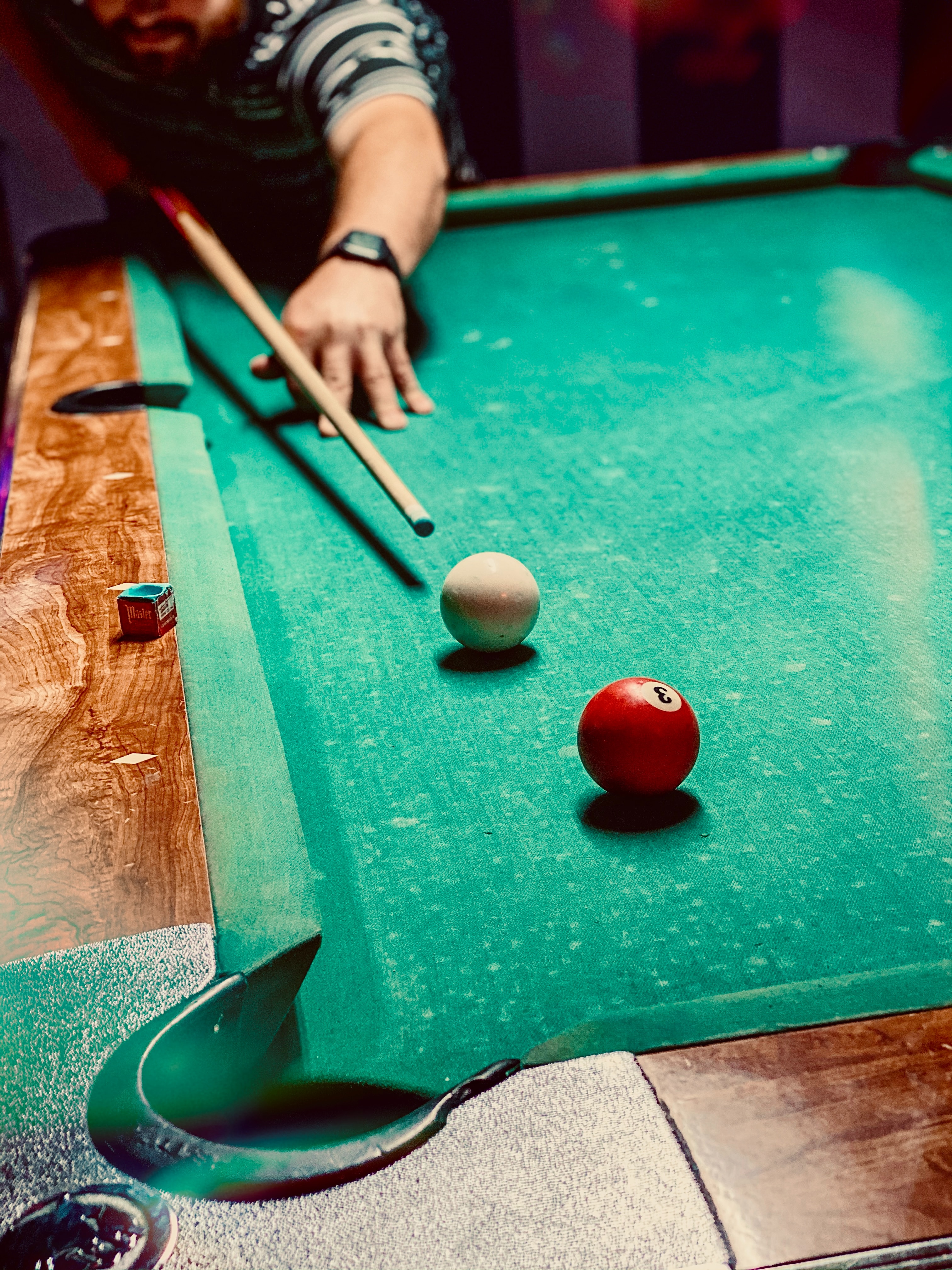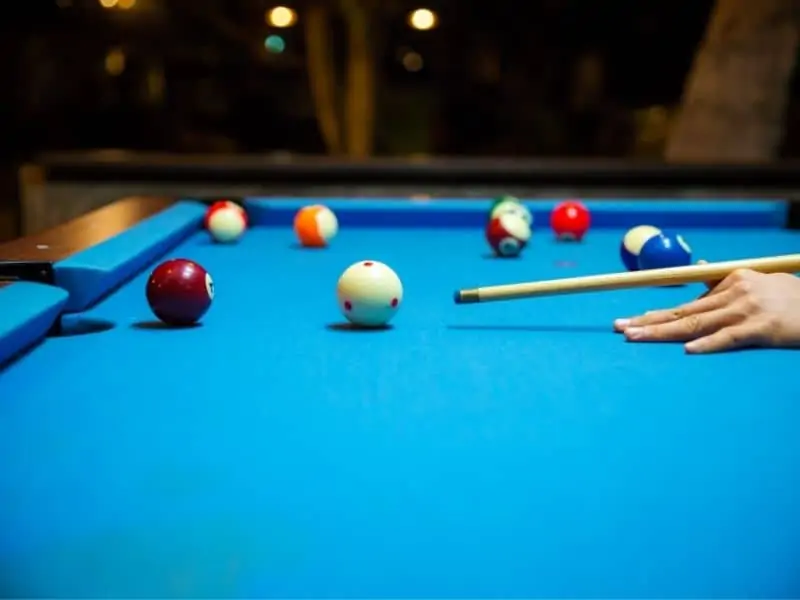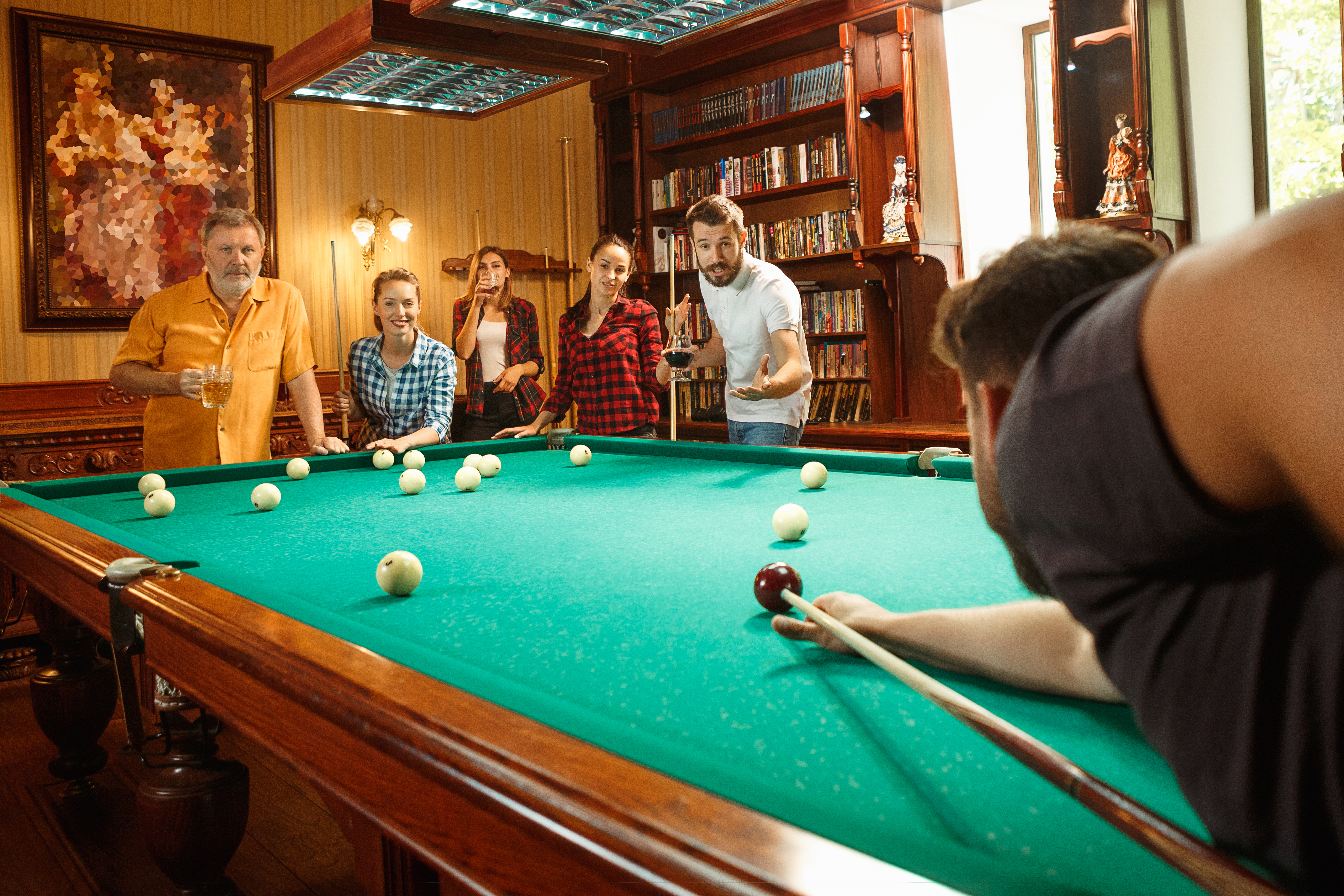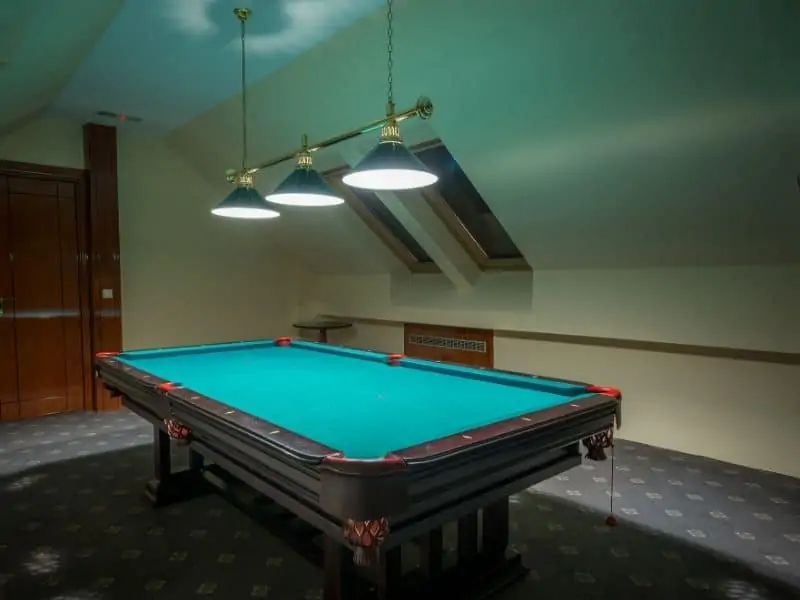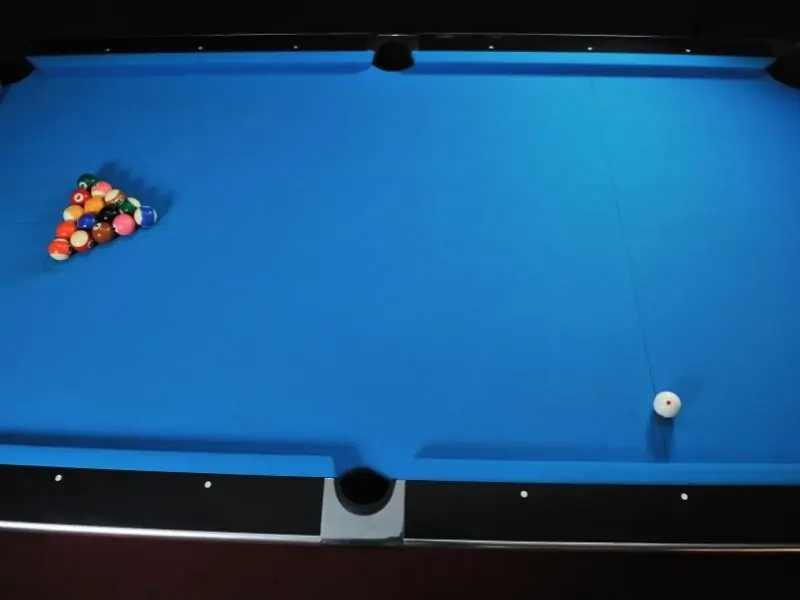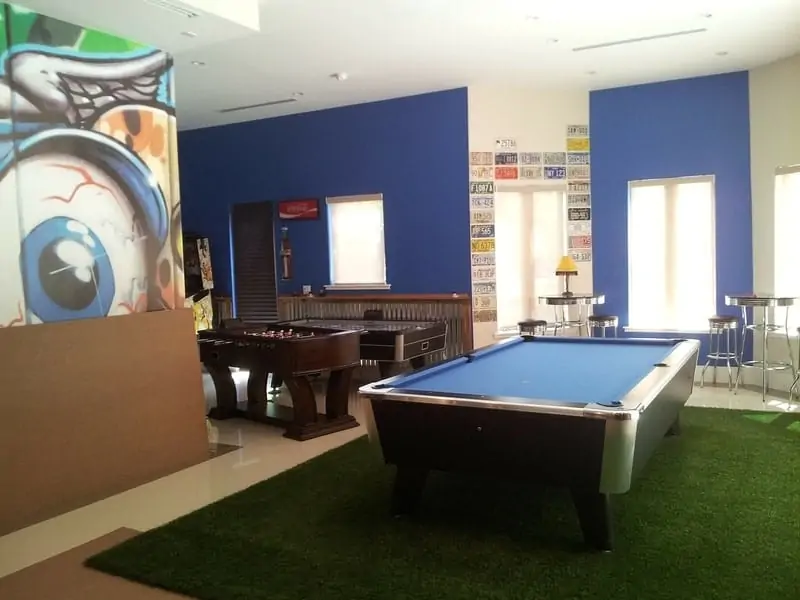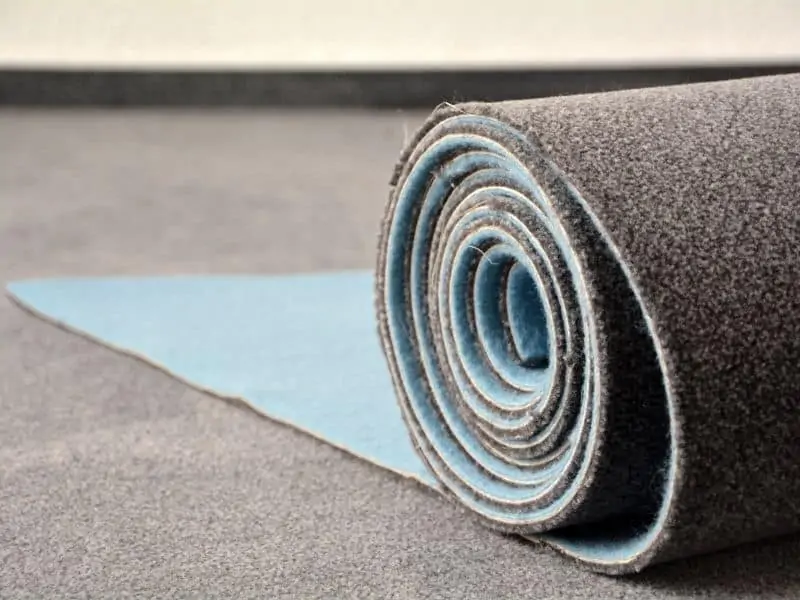Choosing a pool cue can be tricky business, especially if you’re a beginner. Throw in the fact that not all cues are made from the same material and your decision gets even harder. Wood and fiberglass are the most popular material pool cues are made from. But whats the difference between wood and fiberglass pool cues?
The main difference between wood and fiberglass pool cues is the way they feel. Wood pool cues provide a smoother stroke than fiberglass while fiberglass pool cues tend to be more durable.
In this article we’re going to discuss the differences between wood and fiberglass pool cues. Hopefully by the end of this article you’ll have a better understanding of their differences so you can decide on a pool cue that’s right for you.
Fiberglass Pool Cues
Fiberglass pool cues are becoming more and more popular. They are super strong, do not warp, and they just have a really cool look to them. Its easy to see why they are so appealing, especially when they’re typically cheaper than a quality wood cue as well.
While there are some very high dollar fiberglass cues on the market, a good quality cue for a casual player can typically be found for under $100. This relatively cheap price point is a huge advantage over its wooden counterpart and is a big reason why a lot of newer players gravitate toward them.
Another big selling point that fiberglass cues have over wood cues is the fact that they never warp. If you want a cue that you never have to worry about warping, then fiberglass may be the way to go.
Downsides of Fiberglass Pool Cues
Unfortunately, there are a few downsides to fiberglass and graphite cues. The biggest ones being that they “stick” to your bridge hand, especially if your hands sweat easily, and the feel when striking the cue ball is sub-par when compared to a wood cue.
Some players have addressed the “sticking” issue by chalking their bridge hand and the shaft of the cue itself. This does work but it requires constant re-application. A better solution to this problem is to simply wear a glove.
The sub-par feel of the shot, however, cannot be addressed as easily as there is really no way to fix this problem. Some people learn to live with it but for others, the shot just feels too disconnected.
With all that being said, a fiberglass or graphite cue is a good budget friendly option for someone who wants to own their own cue without ever having to worry about it warping.
How Fiberglass Pool Cues Are Made
Fiberglass pool cues are great for a number of reasons, durability being one of them. The durability associated with fiberglass pool cues comes from the way they’re constructed.
Fiberglass pool cues are not made out of fiberglass alone. They are actually made from a wood core and then encased with fiberglass. The wood core is what gives the cue its strength and stiffness and the fiberglass encasement is what keeps the cue from warping. This also makes the cue more scratch and dent resistant.
Some fiberglass cues have special finishes on them to help them glide through your bridge hand better. This coating is crucial if you want to play without using a glove or lots of hand chalk. Most low end fiberglass pool cues don’t have this coating and it shows in the way they feel in your hand.
Wood Pool Cues
The wood cue has been the weapon of choice for more pool players than all the other materials combined. Everyone from beginners to those who play competitively can recognize the value a wood cue brings to the table.
This is largely due to the fact that the wood cue has been around for hundreds of years and has most definitely stood the test of time. With this amount of seniority over its fiberglass and graphite counterparts, it’s no wonder that more people lean towards wood cues time and time again.
Benefits of Wood Pool Cues
The reasons why wood cues are so popular are many. They are strong and durable. They can be repaired if dented or nicked. They provide the best feel when moving through your bridge hand and when striking the cue ball. And if properly maintained, they can last a lifetime.
The biggest concern most people have with a wood cue is warping. But the fact is, if you buy a quality wood cue and take care of it, the chances of it warping are very slim. Warping most often occurs due to improper storage. If you keep your cue in a rack, a case, or even laying flat on your pool table when not in use, its unlikely that your cue will ever warp.
If, however, you leave your cue in the hot trunk of your car very often, or leaned up against a wall for too long, a wood cue could very well warp if the conditions are right.
All in all, a quality wood cue is a great choice for someone looking for ultimate playability and a good feel to their shot. And fortunately, buying one doesn’t mean breaking the bank. Today, a good quality cue can be purchased for around $100-$200. Keep in mind there are cheaper options, buy you typically get what you pay for.
So What’s the Verdict?
If you are someone who wants a cue that can stand up to some abuse and never have to worry about warping, then you should definitely consider a fiberglass or graphite cue. They are very damage resistant and are often the cue of choice for local pool halls where a durable cue is needed more so than one that provides a smooth stroke.
If, however, you are more concerned about shot feel and playability, then a wood cue would probably be your best bet. It is for these two reasons (feel and playability) that more professionals choose wood cues over any other material.
In all reality, the choice between wood, fiberglass, and graphite cues comes down to personal preference. I would highly recommend trying out all three options before you buy one if you can. Taking the time to run through a few racks with each cue will definitely allow you to get a better feel for which cue is right for you. Also be sure you’re buying the right length of cue for your height.
Other Articles You May Be Interested In:
Best Pool Cues for the Money: Discover the top pool cues that offer great value without breaking the bank.
Pool Table in the Garage? Here’s What You Need to Know: Understand the essential considerations for setting up a pool table in your garage.
Break Cue vs Playing Cue: What’s the Difference?: Learn the key differences between break cues and playing cues to enhance your game.
How Much Does a Good Pool Cue Cost?: Explore the factors that determine the cost of a high-quality pool cue.
Are Mini Pool Tables Worth It? A Complete Guide: Read our comprehensive guide on mini pool tables and decide if they’re the right fit for you.
